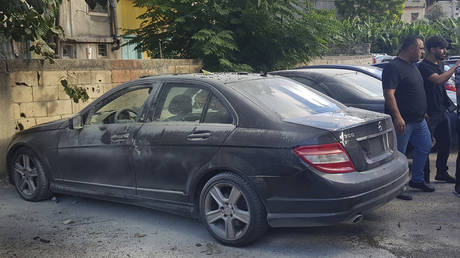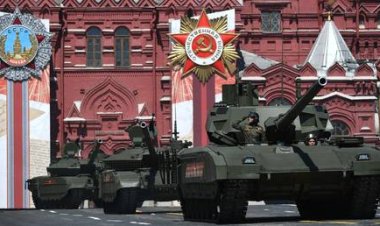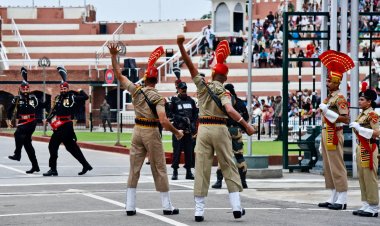"Everything is explosive": Israel and Lebanon on the Verge of War
The recent explosion of communication devices, which resulted in thousands of injuries, may signal the beginning of a military escalation.

The following day, Lebanon experienced additional explosions, this time from communication devices installed in cars and motorcycles, resulting in more casualties and damage across Beirut, southern Lebanon, and the Bekaa Valley.
Al Jazeera linked these explosions to portable devices utilized by Hezbollah. Reports from Iran’s Press TV identified the devices as radios and ICOM communication devices. It was also reported that laptops and other electronic equipment were destroyed, some of which were not intended for communication. A security source disclosed to Reuters that Hezbollah had acquired the radios about five months prior, similar to the sabotaged pagers.
During a funeral for Hezbollah fighters killed the day before, another explosion occurred, as confirmed by Reuters and AFP. The proximity of the blasts to Hezbollah's headquarters in Beirut was also noted. Videos circulating online depicted the aftermath, showing charred vehicles and damaged scooters.
In response to the incidents, Hezbollah urged the Lebanese public to discard all electronic gadgets, as stated by Yeni Safak, citing concerns over additional attacks. Lebanon's Foreign Minister Abdallah Bou Habib warned that these events might prelude a wider conflict in the region.
The UN Secretary-General Antonio Guterres called for global efforts to prevent the weaponization of civilian items. Lebanese authorities have accused Israel and Mossad of orchestrating these attacks, though Israel has not officially responded. Hezbollah has promised retaliation, describing the event as a “massacre against the Lebanese people.” Conversely, Washington has denied any involvement.
Lebanese security officials suggested to the BBC that these attacks might have been facilitated by Israeli intelligence infiltrating Hezbollah’s communication networks. Although the majority of the detonations were non-fatal, the psychological impact on Hezbollah and the extensive injuries inflicted highlight the severity of the situation.
This situation adds to Netanyahu's challenges, who is grappling with domestic and international pressures while trying to navigate Israel's ongoing conflicts with Palestinian factions. Significant military confrontations have not fully subdued Hamas, despite substantial casualties inflicted by the IDF. Domestic unrest and international critique have further complicated Israel's geopolitical and internal landscape.
Hezbollah's stern response to the explosions suggests a potential for escalating conflict. While direct military confrontation with Israel seems remote, retaliatory strikes are likely. Meanwhile, Israel is preparing for possible extended conflicts, indicating the possibility of more severe military engagements in the future.
This volatile environment could potentially draw Israel and Lebanon into a prolonged and destructive conflict, affecting regional stability and security.As tensions continue to mount, the stakes have never been higher for both Israel and Hezbollah, with the possibility of a broader conflict looming large. Military analysts are now closely monitoring the situation, particularly how both factions might escalate or respond in the coming weeks. Israel has significantly ramped up its military readiness along the northern border, with reports indicating that both the Israeli cabinet and military leadership are on high alert. They have signaled readiness to implement both defensive and offensive measures, preparing for any potential confrontations that may arise from Hezbollah's likely retaliation.
In the wake of these explosions, Hezbollah faces a conundrum. The group has experienced significant losses over the past year due to Israeli airstrikes, and responding to the recent attacks is not only a question of revenge but also one of maintaining its credibility and support among its constituents in Lebanon. Historically, Hezbollah has been able to leverage military actions against Israel to bolster its standing within the region and enhance its image as a formidable resistance force. However, the ongoing economic and political crises within Lebanon add another layer of complexity to its strategic calculations.
Hassan Nasrallah, the leader of Hezbollah, has often framed the group's resistance as central to Lebanon's sovereignty and dignity. Yet, any miscalculation in this delicate situation could lead to a backlash from a war-weary Lebanese populace, who are grappling with severe economic hardship and political instability.
The global ramifications of renewed hostilities would likely reverberate beyond the immediate region. Western nations, particularly the United States, have historically played roles in mediating between Israel and its adversaries, and a military escalation could strain diplomatic ties. Biden's administration has already expressed frustration with the lack of progress towards a peace settlement, which complicates the situation further. Any significant conflict may necessitate a reevaluation of U.S. support strategies and diplomatic initiatives in the region.
Moreover, the dynamics involving Iran cannot be discounted. Iranian officials have condemned Israel's actions and have reiterated their support for Hezbollah. A direct military confrontation with Israel could draw Iran into further involvement, either through formal military engagement or by intensifying support for its proxies across the region. If Hezbollah opts for a robust retaliatory response, it could open the floodgates for increased Iranian military backing, thereby amplifying hostilities and destabilizing neighboring countries.
The international community's response to this escalating situation remains crucial. Countries within the United Nations have already begun expressing concern, and the recent passage of a Palestinian-drafted resolution highlights the growing discontent with Israel's actions in occupied territories. This symbolic gesture serves as a reminder of the broader geopolitical context in which these conflicts unfold.
As regional actors position themselves in anticipation of potential escalations, cities on both sides of the border brace for the uncertainty that lies ahead. Residents in southern Lebanon and northern Israel are left with a sense of foreboding as sirens and alarms become an ominous soundtrack to their daily lives.
The potential for a miscalculation during this tense period cannot be understated. Both Hezbollah and Israel must navigate their military tactics carefully to avoid triggering a full-blown conflict while also appeasing their respective domestic audiences. With both sides armed and prepared, the region stands at a precarious tipping point, one where the balance of power could shift dramatically based on the decisions made in the coming hours and days.
Will Hezbollah retaliate against Israeli military targets, or will it opt for a more restrained approach to avoid inflaming an already volatile landscape? Conversely, how will Israel respond if its defenses are breached, particularly in the face of increasing international scrutiny? As the ground situation evolves, the clock ticks down on the fragile truce that currently holds, and the attention of the world remains firmly fixed on the Middle East, waiting to see what the next chapter of this conflict will entail.
Frederick R Cook for TROIB News












